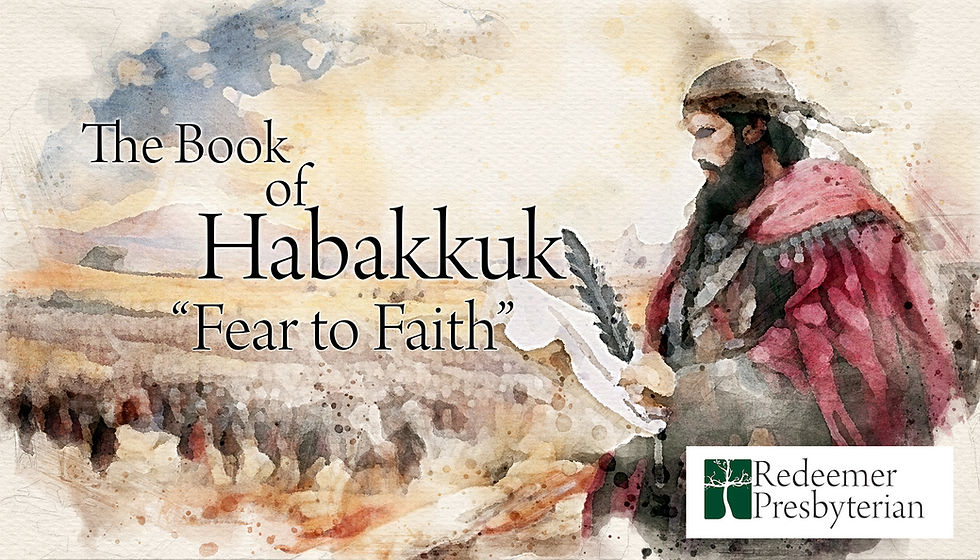
Habakkuk 1:12-17
This Lord’s Day we have the privilege of baptizing one of our covenant children. Should this strike the fear of God into us? Mark Jones, a theologian and pastor writes:
“Baptism really establishes - in a public, visible manner - a covenant relationship. A love relationship, involving promises and responsibilities, blessings and curses, is begun by a gracious God, who must always begin a covenantal relationship to his people. But the responsibilities, promises, and threatenings are not tied solely to the individual. They are corporate responsibilities, promises, and threatenings. Baptism is baptism into Christ, and all that that means (i.e., baptized into his body).
“The fear of God results from the fact the God has chosen to identify himself with my children. In other words, my children are not, fundamentally speaking, my children. They are, through baptism, God's children. Baptism is an adoption ceremony, whereby the child baptized is publicly brought into God's kingdom, his family. The thought of raising God's child is solemn, indeed.”
Of course, baptism is not a sign of my child's faith. Rather, baptism is a sign that my child must look to and embrace by faith until he/she dies. Circumcision was not a sign of faith, but a sign that faith embraced or looked to (cf. Rom. 4:11). Baptism represents Christ (Gal. 3:27), in whom our faith must rest. “In baptism,” Jones writes, “God takes the initiative with our children. He speaks favour to them in baptism ("You are my child, whom I love") and they are to respond in faith to his ‘wooing.’”
“Crucially, as a parent,” he continues,
“when the waters of baptism are poured upon the head of my child, I'm confronted with the sobering, yet glorious, reality that I am raising God's child for his glory. Because my covenant children belong to God and Christ, in terms of the nature of the visible church, the stakes are high. Very high.”
Yes, we have the promise (Acts 2:39), but baptism is also a solemn reminder to those who do not respond in faith, hope, and love to the God who set his seal upon them. “The seal of baptism is more permanent than a tattoo, because the seal has eternal consequences, whether for good or bad.” Baptism is a warning to parents that they cannot take it easy or presume upon the grace of God. They are, after all, invested with the responsibility of raising God's child. And so parents must be, like the pioneer of our faith (Heb. 12:2), examples to their children of what it means to live by faith.
Jones then notes why a public baptism is so important: “parents make vows in public before God and the church. In baptism, God visibly speaks to us words of grace and we, in turn, respond. That is the covenantal orientation one finds in Scripture.”
But again, there is no room for presumption upon the mercies of God as Jones concludes:
“Now if the reality that you are raising God's child causes you to be lax in your approach to family worship, corporate worship, nurture, admonition, teaching, discipline, etc., regarding your children, then you may not have an adequate understanding of the God of the Bible. The covenantal dynamic that parents and children enter into is one whereby rejecting Christ, who is offered in baptism, brings those who reject such grace under a divine curse. Parents mustn't be ignorant of such things. For to whom much is given, much is expected.”
This week we continue our look at Habakkuk 1, in which we see the grave consequences of God’s people who were guilty of presuming upon God’s grace. And the end was tragic. As we participate in covenant baptism and learn of God’s work through Habakkuk, may we be a people who lean heavily upon the grace of God in our lives (in family and otherwise) as we live for his glory.
In Christ,
Pastor Wayne

Comments